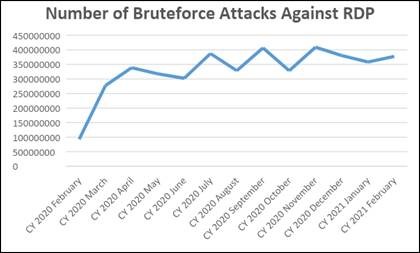According to Kaspersky, technology may hold the key to normality after over a year pandemic misery. However, all I’ve seen so far is the big tech’s get richer, consumers more addicted, and quite frankly if I have to stare at a computer screen a second longer, I will, without question, lose my head. So, let’s see what the experts have to say on the matter.
The past year has caused seismic shifts around the world, forcing us to evaluate how we live our lives and communicate with each other.
Research from cybersecurity expert Kaspersky has found that of all age groups, those in Generation Z have been loneliest over the past 12 months, with nearly three quarters (73%) admitting to feeling isolated during lockdown.
Bearing in mind ‘Gen Z’ is anyone between the ages of 6 and 24, I do have sympathy, but only a little bit. Maybe try they could try holding down a full-time job, whilst in a pandemic, whilst being entirely alone and dealing with actual life and see how ‘lonely’ they feel then perhaps? A sweeping generalisation I know, but how can these people have been the ‘loneliest’ when the majority still live with their parents?
Having seen the footage of our elderly that can’t fend for themselves with no family left (or able) to support them and no one to visit them, talk to me about loneliness then. Tech may be the answer for Gen Z, but it certainly isn’t going to do a great deal for those that don’t know how to work a laptop or smart phone, let alone own one.
But, who has it ‘worse’ aside, being away from friends and family has tested everyone in various forms, but it has also forced many to adapt and to find new ways of communicating with loved ones.
Technology has enabled us to stay in touch with those closest to us, with 71% of Brits stating that technology has allowed them to remain connected with the friends and family who live far away.
But there is still a divide when it comes to technology, with those not being familiar with certain platforms or tools often being left behind – there’s our elderly.
Worryingly, nearly half (46%) of those who have said they felt lonely during lockdown say that they wish they were more confident in using technology, as it would help them feel less isolated. Case and point.
So, as we (hopefully) move away from our third and final national lockdown, while many aspects of traditional social life look set to return to normal, a key lesson to be learned from the past 12 months is that technology, and the confidence in using it, plays a critical role in combatting overall loneliness.
David Emm, principal security researcher at Kaspersky, comments, “We are likely to see these habits continue even after any remaining social distancing measures are lifted.
“It’s important to create secure online habits from the outset to make sure that we do not fall victim to cybercrime at a time when coronavirus is making us more dependent on technology.”
The pandemic effect
While technology may have brought people together socially over the past 12 months, our increasing dependence on it for work has allowed cyberattacks to flourish.
Following the WHO officially declaring a global pandemic in mid-March, countries rushed to enact measures to stem the spread. A popular measure to combat the pandemic was switching companies to remote work.
However, with little time to make the transition, many companies had no time to enact proper security measures, leaving them vulnerable to a number of new security risks. One of the most common were attacks against the protocols used by employees to access corporate resources remotely.
RDP is perhaps the most popular remote desktop protocol and is used to access Windows or servers. After the switch to remote work, bruteforce attacks against this protocol skyrocketed.
In a bruteforce attack, attackers test different usernames and passwords until the correct combination is found – and they gain access to the corporate resources.
Over the past year, while the total number of bruteforce attacks has ebbed and flowed, they have continued to increase when compared to pre-pandemic levels.

According to Kaspersky’s telemetry, when the world went into lockdown in March 2020, the total number of bruteforce attacks against RDP jumped from 93.1m worldwide in February 2020 to 277.4 m 2020 in March – a 197% increase.
From April 2020 onward, monthly attacks never dipped below 300 million, and they reached a new high of 409 million attacks worldwide in November. In February 2021 – nearly one year from the start of the pandemic – there were 377.5m brute-force attacks – a far cry from the 93.1m witnessed at the beginning of 2020.
Dmitry Galov, security expert at Kaspersky commented, “Remote work isn’t going anywhere. Even as companies begin considering re-opening their workplaces, many have stated that they will continue to include remote work in their operating model or pursue a hybrid format.
“That means it’s likely these types of attacks against remote desktop protocols will continue to occur at a rather high rate. 2020 made it clear that companies need to update their security infrastructure, and a good place to start is providing stronger protection for their RDP access.”
To keep your company safe from bruteforce attacks, Kaspersky experts recommend:
- Enable access to RDP through a corporate VPN
- Enable use of Network Level Authentication (NLA) when connecting remotely.
- If possible, enable multi-factor authentication
- Use corporate security solution empowered with network threat protection.
Read more about the biggest evolutions in the threat landscape since the pandemic began on Securelist.

